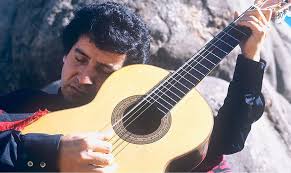This 16 September 2023 marked the 50th anniversary of the murder of Chilean singer-songwriter, composer, poet, and theatre director Víctor Jara. It was no “mistake” or “excess” in the midst of the repressive chaos after the coup. Those who know the Chilean Army will understand that it is a perfect machine that functions with absolute order or vertical command, without the slightest possibility for any improvisation.
“…What a frightening sight is the face of fascism!
They carry out their plans with artful precision.
Without a care for anything
Blood for them is a medal
The slaughter is an act of heroism…”,
Victor wrote in the last hours of his life from the Chile Stadium in the centre of Santiago, which had been converted by the military into an internment and torture camp. He was one of the artistic symbols of the Popular Unity government, a communist militant, one of the most talented theatre directors of his generation in Latin America and the cultural ambassador of Salvador Allende’s Chile.
He had to be one of the first military targets of the coup plotters. After several attempts to investigate his assassination – the most serious and effective was carried out by the team of journalists from the Chilevisión channel, led by my friend Pedro Azocar – the perpetrators were finally found and several of them ended up in prison almost half a century later. But we still do not know the names of the masterminds or the details of the mechanism of death that flowed in those tragic times, between Pinochet and the executioners in uniform in the torture and extermination centres that operated throughout the country.
The Chilean army continues to keep its macabre secrets and the murderers continue to die of old age proud of their “mission” accomplished. In return, the generation that did military service in those days continues to suffer from alcoholism and serious psychological disorders.
The murder of Victor Jara, like the looting of the Baghdad Museum under the watchful eye of the US military or the destruction of Soviet monuments and books by the Ukrainian Nazis, was a military operation directed against the heart of the enemy: its culture.
In 1970, after the murder at a demonstration of the young Chilean communist Miguel Angel Aguilera, Victor wrote one of his most tremendous songs; ‘El alma llena de banderas’ said:
“There, under the earth
You are not asleep, brother, comrade
Your heart hears the spring sprout
That, like you, the winds will blow”.
Much was said about the prophecy of several of his texts (‘Soldier, don’t shoot me’, etc.). I don’t think so, it was simply rational logic in the face of the harsh reality of a fight to the death, with no need for literary embellishments about “mysticism”, “presentiments” or “destinies”. Victor, like his comrades in popular and politically committed art, understood perfectly well what he was exposing himself to. He was a fighter, not a victim, as seen from this perspective. He simply did what he sang about until the no end, just like President Allende.
I find it very scandalous and unbelievable that what impresses people most is the ability of artists or politicians to be consistent. If what we were taught as so normal was to change our jacket many times when it suited us, to adapt our speeches “to avoid problems”, or after writing more than a decade about the crimes of the dictatorship in Chile, in the times of the Soviet Union, then in the times of Yeltsin after making a request for an interview with Pinochet to present him with a public apology for criticising him “being young and influenced by communist propaganda”; as a well-known Russian journalist did and then proudly told his readers about it. Sadly, he was not the only one. How many artists and politicians have done the same or worse things lately? In the case of Chile on the other hand, many former Pinochet supporters repented and condemned the dictatorship because speaking well of Pinochet officially became a bad business. In this strange world living and dying according to what you sing or what you say seems to be the most incredible and rare thing.
To talk about Víctor Jara today is not only to remember the tragedy of Chile 50 years ago, it is to touch the essence of the great national anti-imperialist and at the same time very internationalist Latin American construction of the last century, an urgent search for self-identity and an authentic culture, rooted in our lands and our blood. Victor’s art and that of those like him have been the antidote to the alienating fashions imposed on us, an instrument of profound human transformation:
“…Which is not a rich man’s guitar
Nor anything like it
My song is of the scaffolding
To reach for the stars
That singing has meaning
When it pulsates in the veins
Of the one who will die singing
The real truths
Not fleeting flattery
Nor foreign fame
If not the song of a slice of fish
To the bottom of the earth…”.
September is spring in Chile. Just like the seeds of the flowers of the Atacama, which for years can sleep under the desert sand, awakening when the clouds of the Pacific bring them water, Victor’s heart will one day hear the spring of Latin America and of the world. With so many lyrics, so many notes and so many lives sown on the musical map of the world, the human children of the future will discover this solid and much-needed continent of dreams, the continent called Victor Jara.










